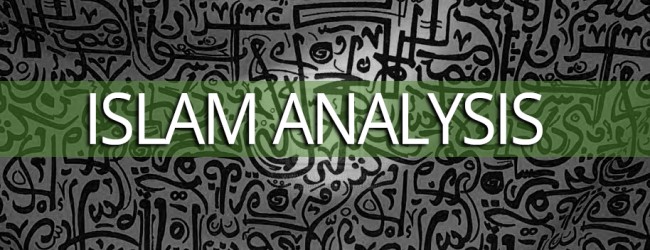
The Islamic World Academy of Sciences has been challenged to build bridges. The hardest may be between disciplines, says Athar Osama.
The Islamic World Academy of Sciences (IAS) was established in 1986 as the Academy of Sciences for 57 Islamic member countries of the Organisation of Islamic Cooperation (OIC).
The academy has three important functions: to promote the values of modern science by recognising scientists and disseminating scientific findings; to be a forum for debating science and scientific issues; and to be a repository of the history of science in Islamic civilisation. Over the years, it has addressed these functions with varying degrees of success. Now, it must meet a new set of challenges.
Forum for change
In its role as a ‘forum’, the IAS organised a conference last month in Doha, Qatar, on the topic ‘The Islamic World and the West: Rebuilding Bridges through Science and Technology’.
The event provided an excellent opportunity for the scientific elite of the Muslim World — the elected fellows of IAS — to mingle with each other and with representatives from some of the leading science academies from the rest of the world.
Gatherings such as these, where representatives of the world’s scientific communities can meet under a decidedly internationalist banner — but without the ‘supervisory’ presence of the diplomatic corps — have been rare in recent years. So they are all the more welcome, particularly when addressing topics that concern science across the Islamic world.
In its simplest form, building bridges, particularly between the East and West, is a much used cliché. However, the IAS conference heard of — and was challenged to start — a much more ambitious bridge-building agenda. And some of the hardest to construct may not be between the East and West.
Work in progress
Mohammed Hassan, the former Director of the Academy of Sciences of the Developing World (TWAS) and currently a vice Chair of the Inter Academy Panel (IAP) outlined four types of ‘bridges’ IAS might consider building: between countries, nations, and regions; between disciplines and multiple communities of practice; between scientists and policy (or decision) makers; and finally bridges across society-at-large by developing grassroots support for science through better communication and community engagement.
Hassan noted that the developing world is adequately addressing only the first of these, pointing to organisations such as IAP, TWAS, as well as the model provided by the International Centre of Theoretical Physics (ICTP).
Others are still works in progress. For example, efforts to better link the scientific and policy communities have not taken root in the developing world, in contrast to well-established norms in the developed world (such as publications by National Academies of Sciences in the United States, and in Britain those produced by The Royal Society).
Speaking truth to power
It is certainly true that the IAS has, over the years, adopted a somewhat cautious approach to engaging with policymakers. Despite generating a steady stream of scholarship and conference proceedings, none have created a significant debate within the policy or media circles.
Admittedly, part of the challenge facing the IAS is the lack of a unified policy audience within the Islamic World.
But, some of the blame must also go to the academy’s apparent reluctance to engage in tough societal and policy debates — even considering that it operates in a social, cultural and political environment that is not very supportive of critical discourse.
Yet, travelling this unfamiliar road of policy engagement and open discussion is something that the scientific community in the Islamic World owes to future generations of scientists and citizens.
It will be difficult to mobilise the support and resources to make this happen. Fewer than half of OIC member countries have national academies to start with, and those that do exist are usually poorly resourced and equipped to meet the challenges facing their national communities.
And even better equipped ones have still not gone beyond experimenting with ways to achieve both impact and relevance — in other words, to speak truth to power.
Relevance requires multidisciplinarity
Of all Hassan’s challenges, the most audacious may be that of building bridges between disciplines and communities of practice — yet this is crucial if science is to demonstrate its relevance in the developing world.
Multidisciplinarity may be a more difficult target for the scientific community to achieve than policy engagement. It requires that academies, which are currently limited to the natural sciences and engineering, open up to a more diverse set of views and ways of thinking and problem solving. Academies have often struggled with embracing change, for example resisting greater participation by women and younger scientists.
Hassan may have not meant to be as expansive in his interpretation. But others at the conference took up the call.
Rudiger Klein, executive director of the Federation of National Academies of Sciences and Humanities (ALLEA) in 40 European countries, addressed the meeting and said that science academies must incorporate other disciplines, such as social sciences and even humanities, if they want to remain relevant and to engage with society’s problems.
It will not be easy. “Academies of sciences in the Islamic World are far from embracing this reality,” says Ishfaque Ahmed, former president of The Pakistan Academy of Sciences (PAS), who once tried unsuccessfully to persuade the PAS to admit social scientists as fellows.
But the Islamic Academy of Sciences, as a multinational standard bearer for the national academies in the Islamic World, must step up to the challenge and provide leadership for this nascent movement.
Athar Osama is a London-based science and innovation policy consultant. He is the founder and CEO of Technomics International Ltd, a UK-based international technology policy consulting firm, and founder of localhost/muslim.